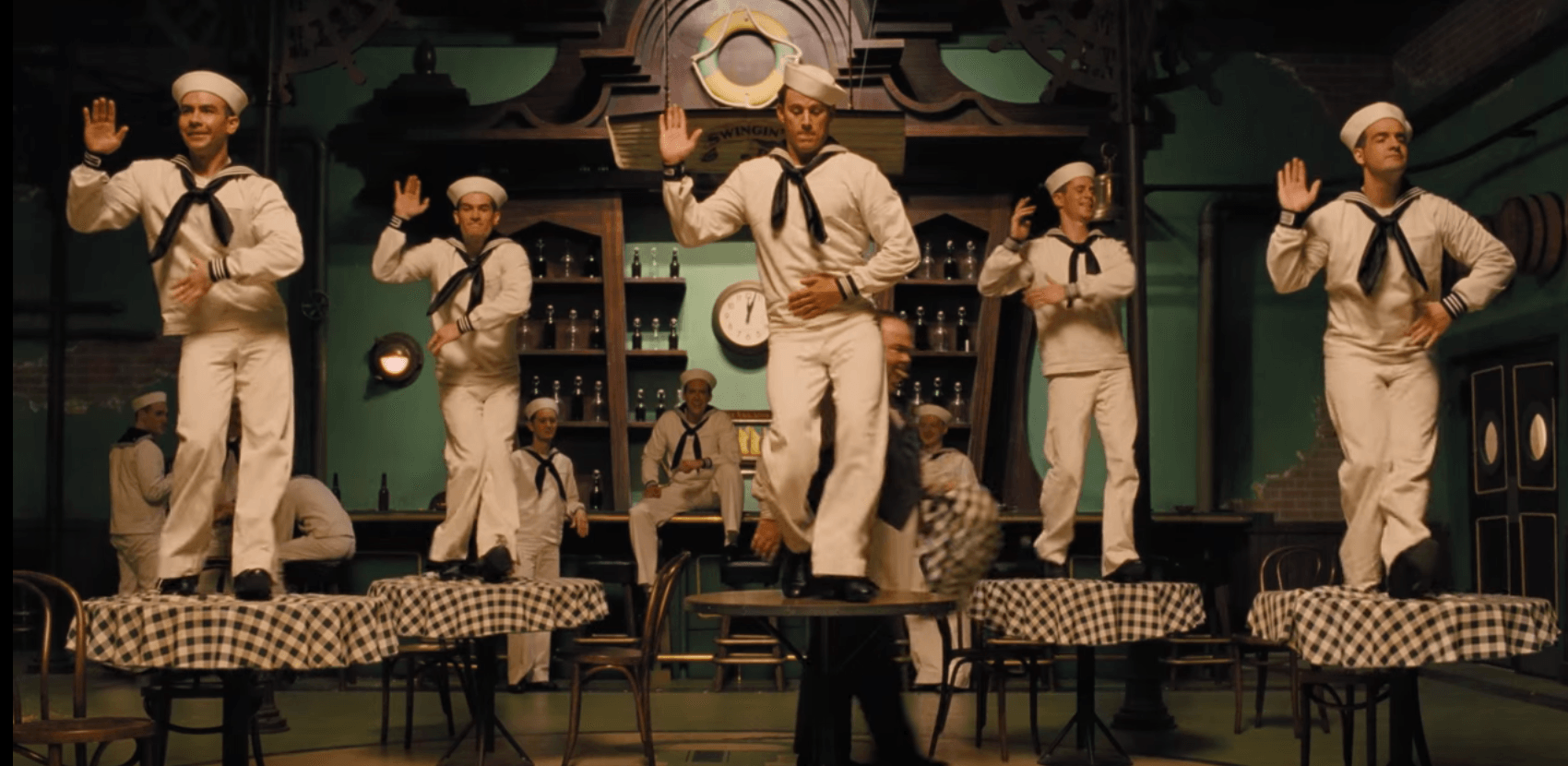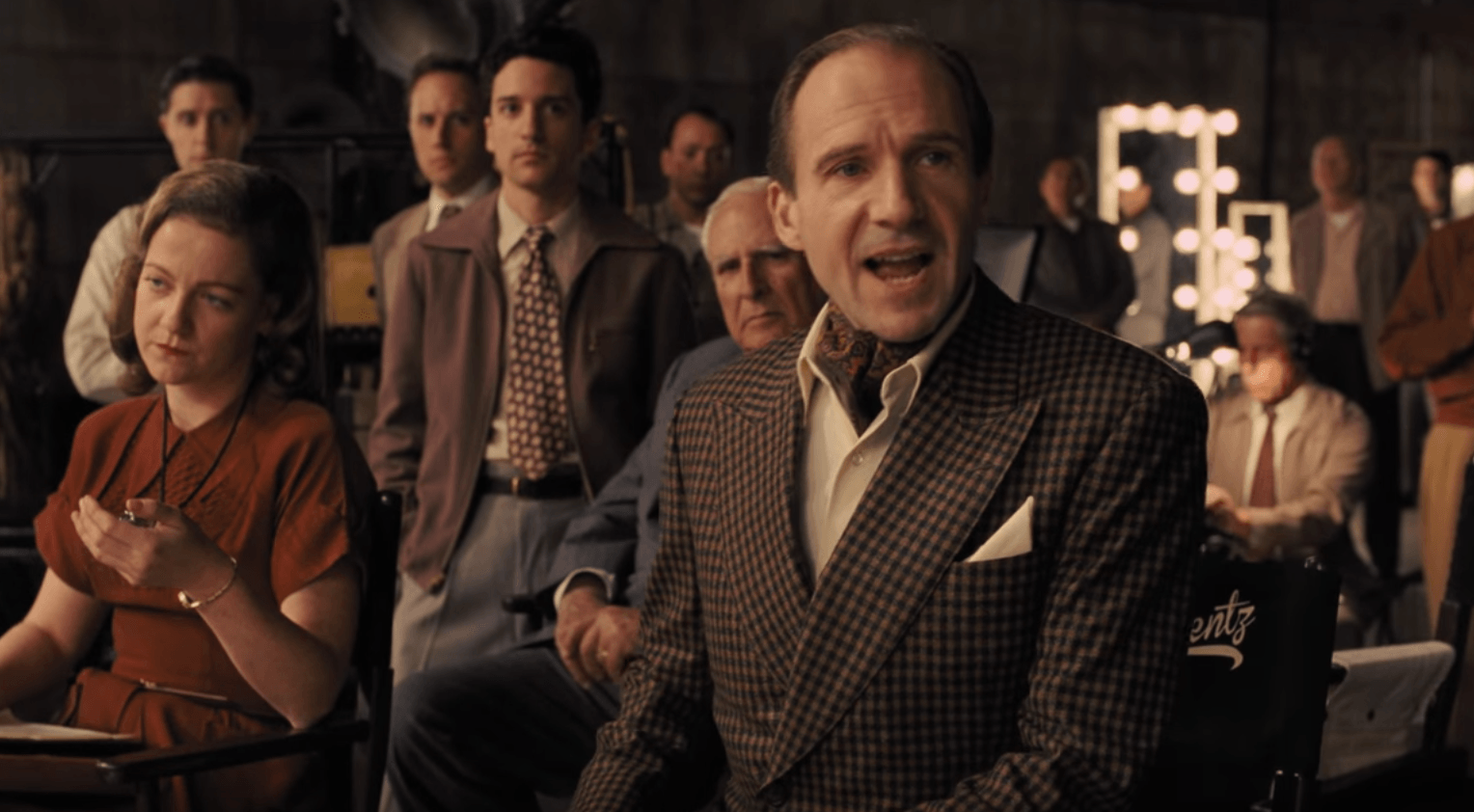SUMMARY
This is AI generated summarization, which may have errors. For context, always refer to the full article.

At first glance, the Coen Brothers’ Hail, Caesar! looks absolutely silly.
And it is. The title is actually the title of the fictional sword-and-sandal epic starring renowned actor Baird Whitlock (George Clooney) which is to be the centerpiece of Capitol Pictures, a Hollywood studio famed for its scandalous stars and escapist flicks.
The production of the epic serves as the core of the narrative. Baird, as it turns out, is kidnapped from the set, forcing the production to halt and Capitol Pictures’ fixer Eddie Mannix (Josh Brolin) to juggle that issue along with all the other issues he needs to quietly settle. In the larger picture, Hollywood is facing an impending change that has everyone feeling uneasy.
A different nostalgia

It is set in the years that saw Hollywood churn out masterpieces like Billy Wilder’s Sunset Boulevard (1950) and Alfred Hitchcock’s Strangers in a Train (1951) – alongside the countless mediocre musicales, westerns, and erstwhile spectacles.
Hail, Caesar! joins films like Frank Darabont’s The Majestic (2001) and most recently, Jay Roach’s Trumbo (2015), in depicting Hollywood during turbulent times. What essentially differentiates the Coen Brothers’ film is that it abandons trite romanticization for sharp satire.
This is a different kind of nostalgia that is at play here. It is sober, refusing to unduly reward the past with gloss and stubborn poetics and instead examines it with clever cynicism. The Coens opens the doors to a Hollywood that is tainted, entirely distinct and separate from the delightful pictures it produces for the purpose of placating the public.
It is a richly layered film. As the film follows Eddie Mannix around the studio lot, slapping sense out of stars and negotiating with gossip columnists, it exposes the devious machinations of Tinseltown.
Hail, Caesar! juxtaposes the dirt with magic, showing the inner workings of how movies are made and how it is actually quite an exploitative system alongside the full splendor of the products that the despicable system creates. The Coen Brothers puts their audience in a whirlwind of emotions and expectations, pushing them away with obnoxious side deals and politics, and pulling them in with alluring mermaids and dancing sailors.
Hilarious tapestry
Hail, Caesar! portrays Hollywood with very little reverence, and in turn, crafts a gargantuan caricature out of a culture that still pervades up to now.

The film is extremely funny. It pokes fun at the apparent disconnect between the silver screen and the back lot that manufactures the content. The Coen Brothers peppers the film with scenes that expose the stark differences between reality and the fantasies created by the movie industry.
One example is when sweetheart DeeAnna Moran (Scarlett Johansson) fumes and throws a fit right after majestically diving into a pool, or when cowboy Hobie Doyle (Alden Ehrenreich) stutters with his distinct accent while director Laurence Laurentz (Ralph Fiennes) desperately mouths his line.

There is a certain audacity to the Coen Brothers’ methods. In a way, the film can be likened to a tabloid in the way it treats the issues it covers. The film grandly exaggerates for comic effect. It magnifies the stupid and illogic, making it seem that Hollywood’s past is a circus and everyone in it are worthy of gross sensationalism.
Blunt satire
This is satire at its bluntest, and despite its frequent escapes towards the absurd, it all makes brilliant sense.

This isn’t just a hodgepodge of sketches that mine Hollywood stereotypes for laughs, even though it may sometimes feel that way with the film’s dizzying mix of sensibility and silliness. There is definitely something else at work here, and whatever that is, it is indubitably magnetic. You simply can’t peel your eyes off the screen as Hollywood nears self-destruction but manages to survive with all its virtues and immorality intact. – Rappler.com
 Francis Joseph Cruz litigates for a living and writes about cinema for fun. The first Filipino movie he saw in the theaters was Carlo J. Caparas’ ‘Tirad Pass.’ Since then, he’s been on a mission to find better memories with Philippine cinema. Profile photo by Fatcat Studios
Francis Joseph Cruz litigates for a living and writes about cinema for fun. The first Filipino movie he saw in the theaters was Carlo J. Caparas’ ‘Tirad Pass.’ Since then, he’s been on a mission to find better memories with Philippine cinema. Profile photo by Fatcat Studios
Add a comment
How does this make you feel?
There are no comments yet. Add your comment to start the conversation.